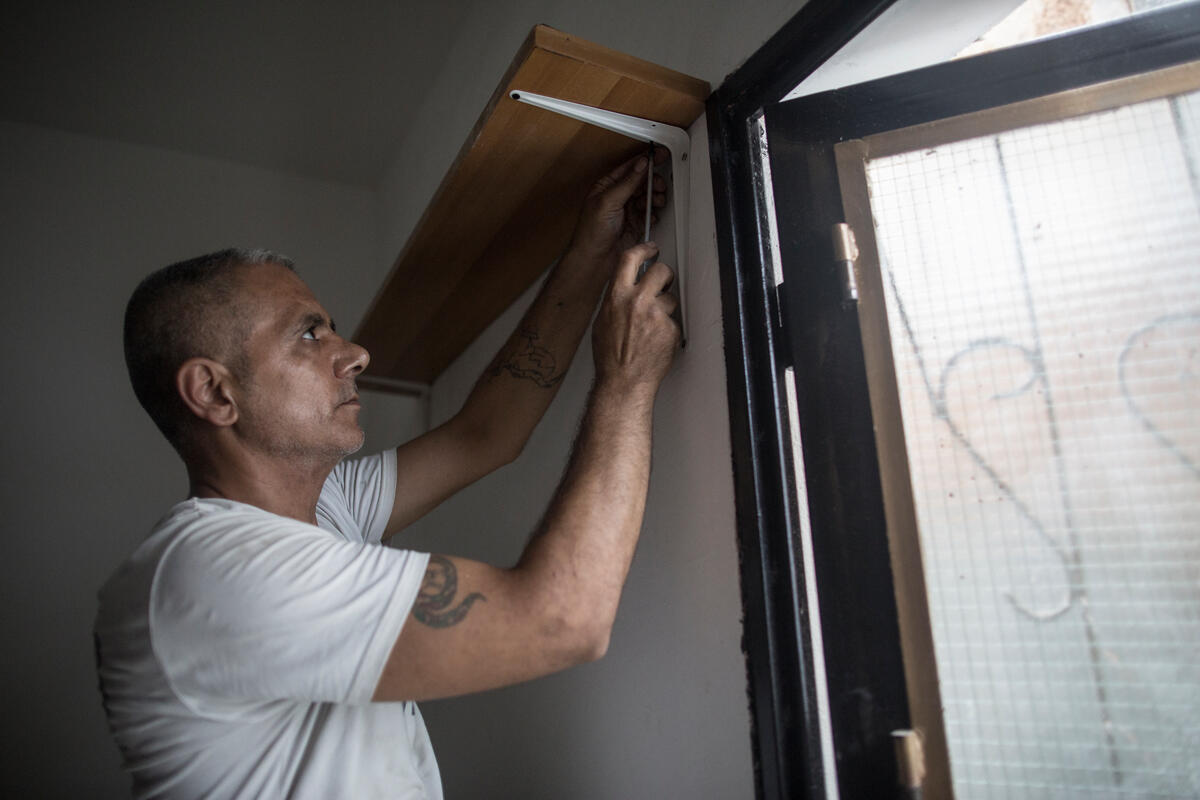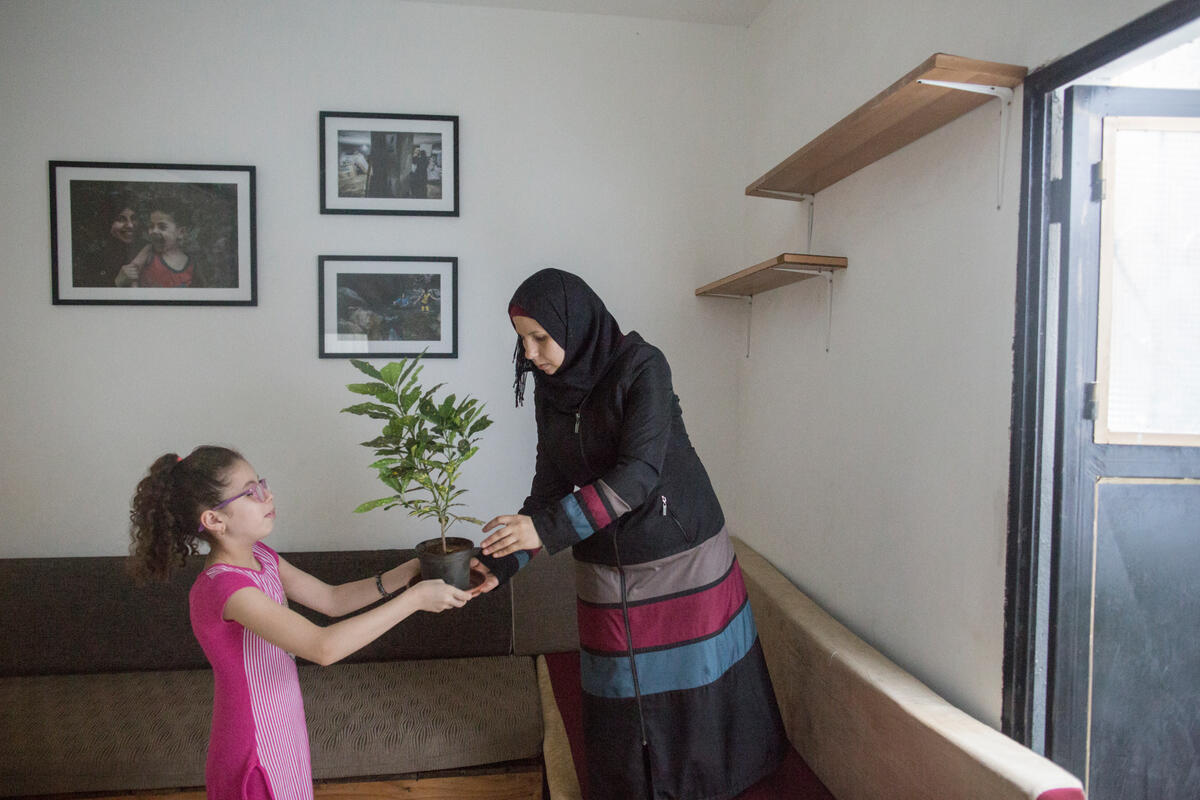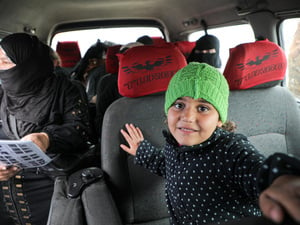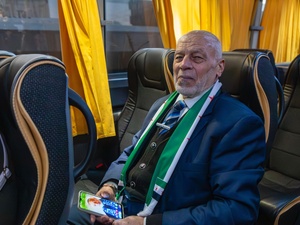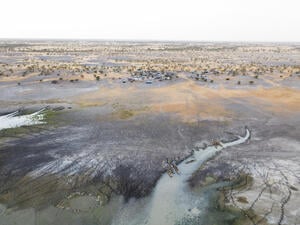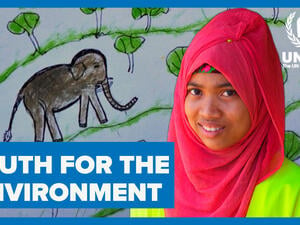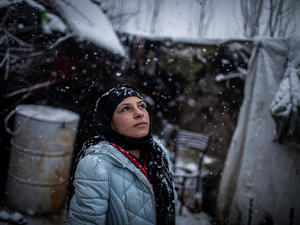Eco-friendly renovation brings light to Syrians in Lebanon
For the first time in three years, Haela and her four children can finally enjoy fresh air and some natural light in their small one-room apartment in Ouzaii, a sprawling slum area in the south of Lebanon’s capital, Beirut.
The ground-floor apartment in an old and poorly constructed building has been home to Syrian refugee Haela Kellawi since 2014, when she and her children fled conflict in Damascus after her husband went missing. Despite having a roof over her head, 32-year-old Haela worried that the lack of adequate ventilation, sunlight and poor electricity and plumbing was really bad for her children’s health.
"Before, they couldn’t breathe properly."
“Before, they couldn’t breathe properly, they always used to play outside,” Haela explains. “They would refuse to come inside because they would feel like they were suffocating.” People would throw trash into the small outside space next to the apartment, which piled up so much that it blocked their only window, preventing sunlight and fresh air from coming in.
The situation prompted local Lebanese NGO Recycle Beirut to choose Haela’s house to implement their first house renovation project in Lebanon, using recycled materials and eco-friendly techniques.
Lebanon is currently home to more than one million Syrian refugees, accounting for around a quarter of the total population. A 2016 study by UNHCR, the UN Refugee Agency, found that 71 per cent of Syrian refugees in the country live below the poverty line, while 42 per cent of households live in dwellings that do not meet minimum humanitarian standards.
"She had flooding, rats, cockroaches. She didn’t have proper drainage and electricity, so we felt like this was very critical to address, and we kind of started with her,” says Aline Rad, an architect from Recycle Beirut. "So our main focus was to create a safe environment for Haela and her children."
Over the past two years, Recycle Beirut, which employs vulnerable Syrian refugees like Haela in its recycling warehouse, has been working to help clean up the environment and solve the country’s waste crisis. Haela’s house is their first renovation project, which they describe as "slum upgrading".
“The first thing that we did was to create windows, let the sun in, put in some plants, and restore natural ventilation. Then we moved on to using recycled material for the renovation of the house,” adds Rad.
Most of the concrete used to renovate Haela's house was made up of sand, quarried stone, finely crushed green glass and construction waste. The NGO applied a non-toxic water sealer to the outside of the house and installed a secure energy efficient electrical system and new piping made of polypropylene. It also used eco-friendly paints for the living room. For the furniture, it used reclaimed wood and fabric from Tekaya Design, who offered their products for free.
The renovation project, which also provided employment for more than 20 Lebanese and foreign people from plumbers to designers and tile makers, took six months to finish and cost the NGO US$10,000.
“I am over the moon... I have a healthy house now."
Haela was delighted with the results, and says the renovation has had a positive impact on the lives of her children. “I am over the moon. I am very happy because I have a healthy house now, and it has changed the children’s mood.”
Her eight-year-old daughter Marwa says she now spends her evenings in the small, bright courtyard outside the apartment. “I like it when the sun sets, I come here to read and enjoy a breath of fresh air,” she explains.
Recycle Beirut says it hopes to expand the pilot project to help more refugees and unprivileged Lebanese residents to live in improved and safer houses.
“We’re doing a study on the entire slum to be able to pinpoint the most disadvantaged people living there so we can attend to their needs," Rad says. "We want to create a space for all the designers, all the architects, all the people that are interested in this, in improving the lives of refugees, on one hand, and on the other hand, for slum dwellers, to be able to cooperate so both can benefit.”


